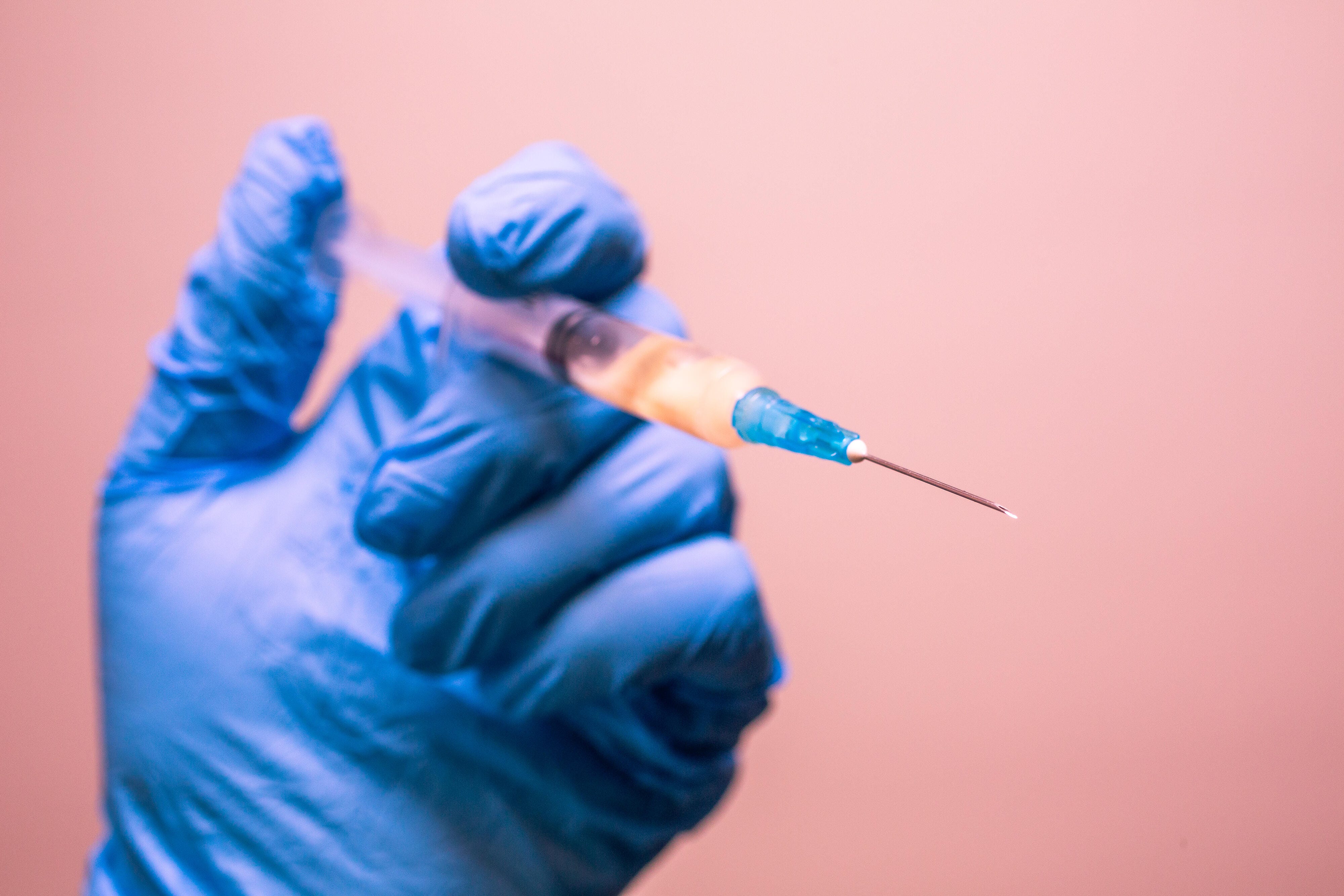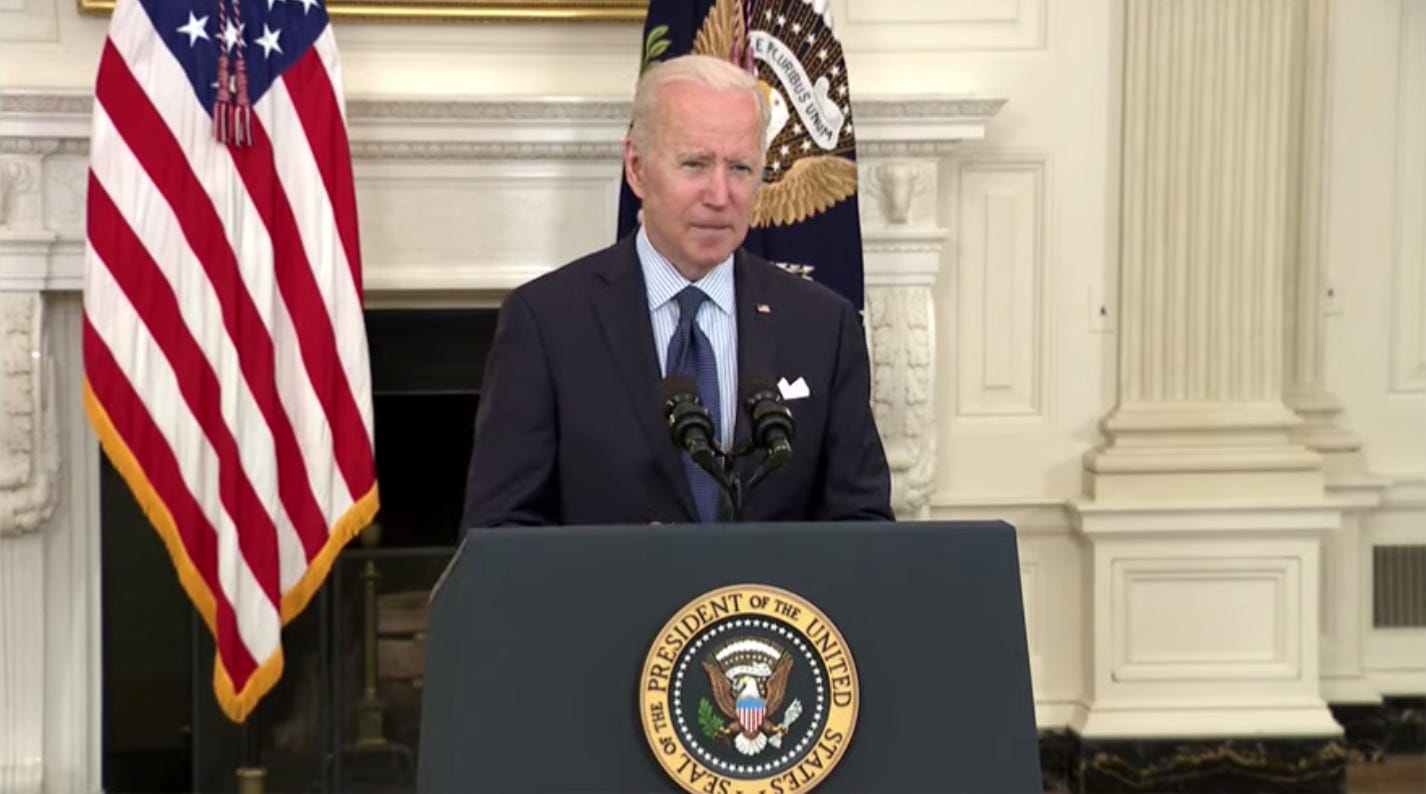
Medical studies show vaccines still provide strong protection against the most serious effects of COVID-19, including variants.
Sara Tew/CNETFollowing concerns that the protection coronavirus vaccines provide against serious infection may soon start to decrease for those who are fully vaccinated, the White House on Wednesday will announce plans for a booster vaccine shot as soon as this fall. A booster shot would help shore up protection from the virus for those who are fully vaccinated as the delta variant takes hold across the country.
The US Food and Drug Administration has already authorized a third dose of the Moderna and Pfizer vaccines for some immunocompromised people. The guidance on Wednesday from administration health and medical experts would recommend a booster shot for most Americans who are already vaccinated, starting with nursing-home residents and health care and emergency workers, according to the New York Times, with older adults and then the general population next in line.
The recommendation follows reports that the effectiveness of the vaccine starts to decline after eight months. According to the Times, the Biden administration will reportedly advise that those who are fully vaccinated will need a booster eight months after being fully vaccinated. In a briefing today, White House press secretary Jen Psaki said President Joe Biden and First Lady Jill Biden will follow government guidelines for booster shots once those guidelines are released.
What does all this mean in the US? Read on for what we know about COVID-19 booster shots today, including why they're needed, how they relate to breakthrough infections and what the controversy has been surrounding third shots. We'll be updating this as new information is released.
What could the Biden administration advise about coronavirus booster shots?
Health officials with the Biden administration are expected on Wednesday to recommend an additional shot for most Americans who are fully vaccinated. The guidance follows reports from Israel that the protection the Pfizer vaccine provides may start to decrease after eight months. The administration will reportedly recommend a booster vaccination eight months after becoming fully vaccinated, which for those who received their shots in January and February would be as early as mid-September.
"There is a concern that the vaccine may start to wane in its effectiveness over months," Francis Collins, director of the National Institutes of Health, said on Fox News on Sunday. "And delta is a nasty one for us to try to deal with. The combination of those two means we may need boosters, maybe beginning first with health care providers, as well as people in nursing homes, and then gradually moving forward."
Will everyone who is fully vaccinated need a booster shot?
The Biden administration is expected to recommend that Americans who are fully vaccinated with the Pfizer or Moderna vaccines will need a third shot. The new recommendation will depend on the FDA's authorization of additional shots, the New York Times reported.
The administration expects those who received the one-dose Johnson & Johnson vaccine will also need another jab, according to the Times.
Are COVID-19 booster shots available now?
Some who already are eligible under guidelines from the Centers for Disease Control and Prevention can now go out and get their third dose of a COVID-19 vaccine. The list of immunocompromised people who can get a third shot includes solid organ transplant recipients or people who have an "equivalent level of immunocompromise" and who have a reduced ability to fight off infections, making them more vulnerable to the coronavirus. Booster authorization hasn't been expanded more broadly to those with other chronic medical conditions, but that might be next.
The CDC recommendation is for an additional dose of the two-shot vaccine for certain immunocompromised people, which is a small group. Within that category, the recommendation is for those 18 and older for the Moderna vaccine, and 12 and older for the Pfizer vaccine. The FDA didn't authorize an additional dose of the Johnson & Johnson vaccine, and because of a lack of data the CDC doesn't recommend a second dose for immunocompromised people who got the one-shot vaccine.
About 3% of US adults are immunocompromised, according to the CDC, but research suggests they account for about 44% of hospitalized breakthrough cases of COVID-19. Not only are they more likely to get very ill from COVID-19, they also have a lower antibody response to vaccines and are at a higher risk of transmitting the virus.
Those with other conditions, like diabetes and heart disease, aren't advised to get a booster, at least for now. Here's a list of people the CDC recommends get an extra dose if they got the Pfizer or Moderna vaccine:
- Those with advanced or untreated HIV infection.
- Cancer patients and transplant recipients who are taking certain immunosuppressive drugs.
- Those receiving active cancer treatment for tumors or cancers of the blood.
- Those with moderate or severe primary immunodeficiency.
- Patients being treated with high-dose corticosteroids or other drugs that may suppress immune response.
- People who received a stem cell transplant within the last two years and are taking certain drugs. The CDC says to talk to your medical provider about your health condition and whether a third shot is appropriate.
If you're unsure if you're qualified, the CDC says to talk to your medical provider about your health condition and whether a third dose is appropriate.
What's behind the need for COVID-19 booster shots?
Calling the eradication of the COVID-19 virus "unlikely," a UK scientific advisory group says (PDF) there's a "realistic possibility" that a variant will emerge that is resistant to the current battery of vaccines. Governments, public health organizations and vaccine makers are all tracking developments in coronavirus variants like delta and lambda, hoping to determine if booster shots targeting new variants will be needed soon among the general population.
As of July, in the US, "breakthrough" coronavirus cases caused by the dominant delta variant amount to less than 1% of people who are fully vaccinated. Both the Moderna and Pfizer vaccines have proved to be more than 90% effective against hospitalizations and death. Nonetheless, a CDC study shows that vaccinated people can both contract the highly contagious delta variant and spread it. According to a widely reported internal CDC memo, the delta variant spreads as easily as chicken pox, which is considered more contagious than the flu but less contagious than measles.
The surge in new COVID-19 cases is primarily affecting unvaccinated people and causing community spread, and in turn, prompting the return of mask mandates and guidance in hard-hit areas, even for people who have full vaccine protection. The debate over mask use and vaccine boosters underscores how scientists and other health experts continue to grapple with the uncertainties of COVID-19.
What's the controversy over booster shots?
Israel has been administering third doses of the vaccine to those 60 and older, and the UK plans to do the same in September. However, this is resulting in a backlash among countries that are struggling to deliver first and second shots to residents.
World Health Organization Director-General Tedros Adhanom Ghebreyesus called for a "moratorium" on booster shots in high-income countries, citing the global disparity in vaccine distribution. Of the 4 billion doses administered globally, 80% have gone to high- and upper-middle income countries that make up less than half the world's population, he said.
"We cannot accept countries that have already used most of the global supply of vaccines using even more of it, while the world's most vulnerable people remain unprotected. We call on vaccine producers to prioritize Covax," Tedros said, referring to the world's COVID-19 vaccine distribution program.
Psaki on Tuesday said the US will have enough vaccines to both provide boosters for those who are fully vaccinated in the US and meet the global demand. "We have long planned from enough supply," she said.
What's the difference between boosters and a new COVID-19 vaccine?
Moderna's and Pfizer's current two-dose vaccine provide effective protection against all known variants of COVID-19, including the delta variant, according to ongoing studies and self-reported statistics. But Pfizer announced in July that a third dose of its vaccine is currently under development. The company said its own research showed a booster shot of its current vaccine increased antibody levels five to 10 times higher over its two-dose shots, noting that its results haven't been published or peer-reviewed. This week, Pfizer submitted data to the FDA to receive approval for a booster shot.
What's happening with Johnson & Johnson boosters?
At this time, the FDA and CDC haven't extended the authorization and recommendation for an additional dose to the Johnson & Johnson vaccine, citing insufficient data.
Residents in San Francisco who received Johnson & Johnson's one-dose COVID-19 vaccine were given the green light to get a supplemental dose of an mRNA vaccine, though it still isn't recommended by the city's health department. Dr. Grant Colfax, San Francisco's health director, said there isn't conclusive evidence that getting a dose of Pfizer or Moderna benefits those who got the J&J shot, but there's also no evidence to show it's harmful, the San Francisco Chronicle reported. "If people received the Johnson & Johnson and are requesting a second shot, we will accommodate them, but our policy has not changed," Colfax said.
San Francisco's decision to legitimize Johnson & Johnson vaccine recipients getting an mRNA vaccine comes in light of a small study that suggests the vaccine isn't nearly as effective against the delta variant as the other vaccines. (Another study suggests that Johnson & Johnson remains effective, and the drug-maker continues to assert that the vaccine is effective.)

The Biden administration says booster shots would be free.
Screenshot by Corinne Reichert/CNETWould the booster shot be free?
The current one-dose vaccine shot from Johnson & Johnson and two-dose versions from Moderna and Pfizer are free to anyone who wants to get vaccinated. According to the Biden administration, COVID-19 booster shots will also be free, if and when they're approved.
Is it OK to mix and match COVID-19 vaccines?
According to the Times, administration officials may recommend people get a booster for the same vaccine they originally received.
The CDC now says a third dose of a different vaccine brand is permitted if a dose of the same type isn't available.
Other global health agencies and countries are testing administered vaccines from two different manufacturers. In the UK, for example, a recent study found that those who received a first dose of the AstraZeneca vaccine and a second of Pfizer had a higher immune response than those who received two doses of the AstraZeneca vaccine.
While we watch how the situation develops, here's what we know about the delta variant, more about COVID-19 boosters and info on whether you need to continue to wear a mask.
The information contained in this article is for educational and informational purposes only and is not intended as health or medical advice. Always consult a physician or other qualified health provider regarding any questions you may have about a medical condition or health objectives.
Article From & Read More ( US to recommend COVID booster shots after 8 months: Who could get them and why - CNET )https://ift.tt/3iRvw2W
Health
Bagikan Berita Ini














0 Response to "US to recommend COVID booster shots after 8 months: Who could get them and why - CNET"
Post a Comment